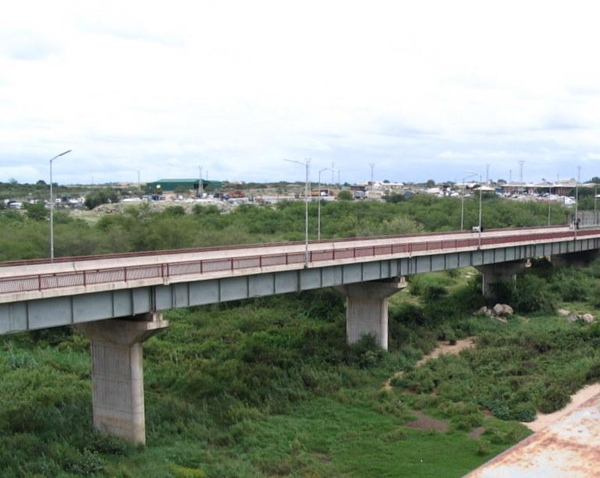

Beitbridge, where the main land border between South Africa and Zimbabwe is. Photo by Faizel Slamang.
16 October 2014
Tightening border controls is not the way to prevent an outbreak of Ebola in South Africa, writes Nathan Geffen.
Tariro Washinyira’s GroundUp article describing how she was smuggled across the Zimbabwean-South African border has prompted some readers to express concerns that our badly guarded borders put us at risk of an Ebola outbreak.
Washinyira went undercover to report how people smugglers pay bribes to border guards. What is apparent from the article is that it if you have a little money and are willing to put up with several hours of inconvenience, it is easy to cross the border unlawfully.
But there is nothing special about the porousness of South Africa’s border with Zimbabwe. There are many borders across the world where it is not difficult, with persistence, to cross without documents. Even the US, despite its considerable resources, has a porous border with Mexico.
The reality is that borders are increasingly anachronistic. If there’s a lesson to be learned from Washinyira’s article, it is that it is not worth the effort investing too much into sealing the SA-Zimbabwe border; people will find a way to cross it. And that is not the terrible thing it is made out to be; immigration brings challenges but also benefits to South Africa.
Ebola is frightful because it is a poorly understood infectious disease with a high death rate. We cannot be confident that there will not be an outbreak in South Africa. It is possible that a few people with Ebola will arrive via air travel. But it would require a confluence of several unlikely things to happen for it to become an epidemic here, or for such an epidemic to start because of border breaches.
And we should not flatter ourselves that people with Ebola are clamouring to get to South Africa because we have such a brilliant health system. There are many other places it makes more sense to go to, starting with the Medecins sans Frontieres facilities in Sierra Leone, Liberia and Guinea.
Strengthening our weak health systems, so that if there is an outbreak we can contain it and offer the best care possible to sick people is far more important than tightening border control.
Perhaps the most important thing the South African government can do about Ebola is to provide material support to the affected countries, so that they can bring their epidemics under control. Some South Africans have travelled to the affected countries to volunteer their skills to combat this awful disease. Few of us have have the courage to do that, or the skills to be of benefit. But those that do should be commended for setting an excellent example.
See also: